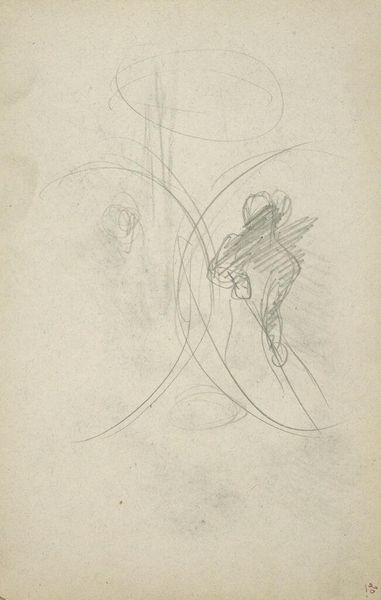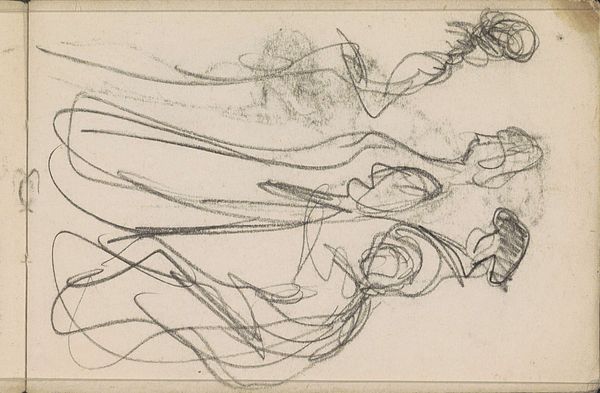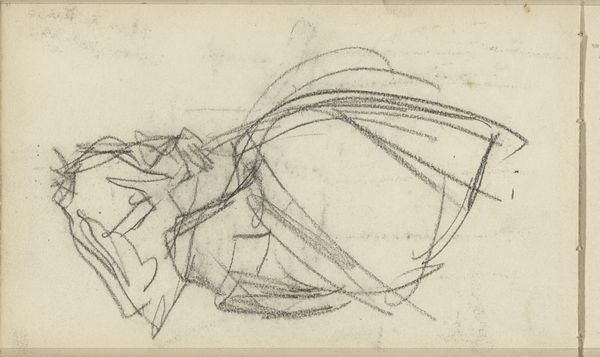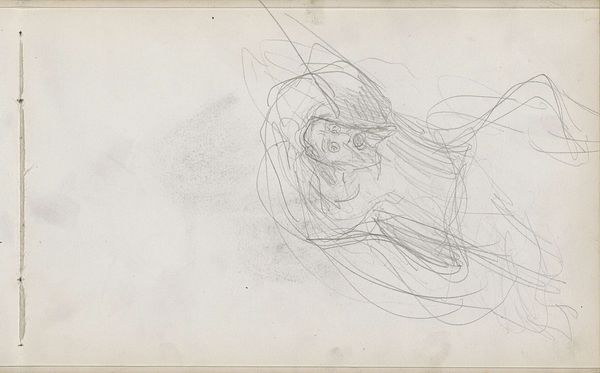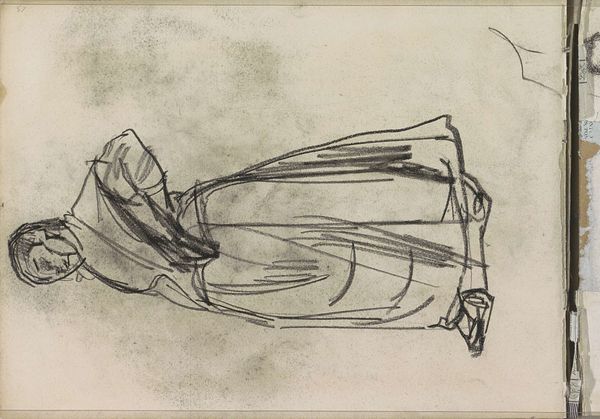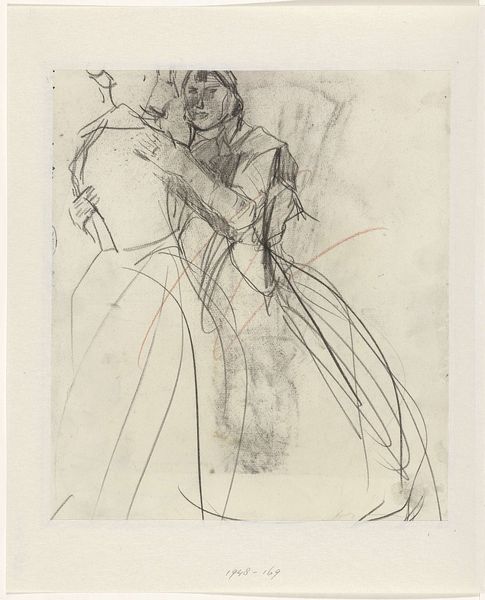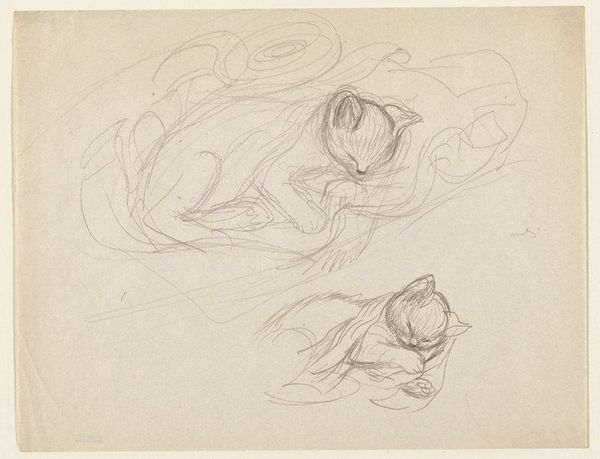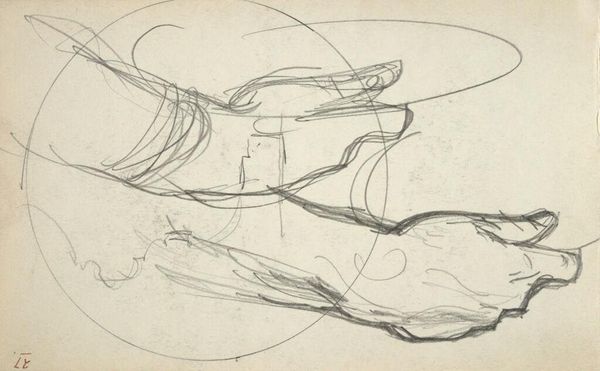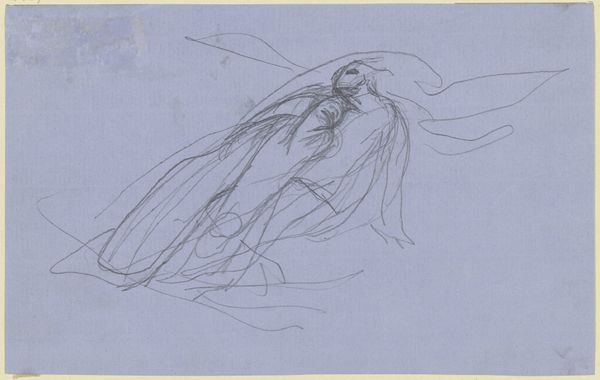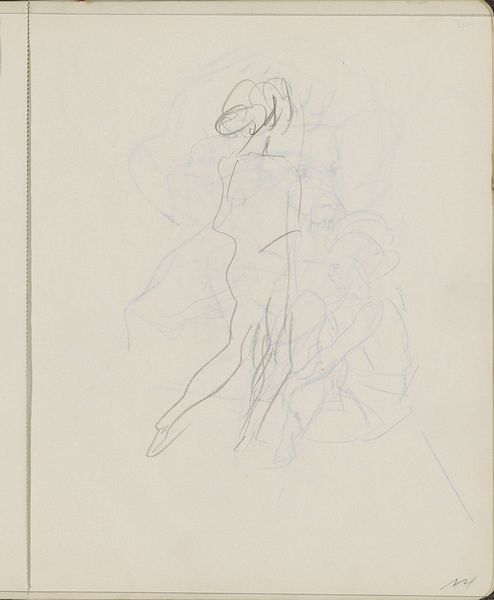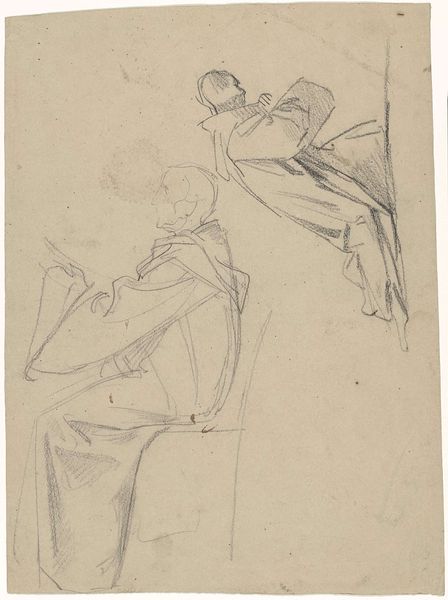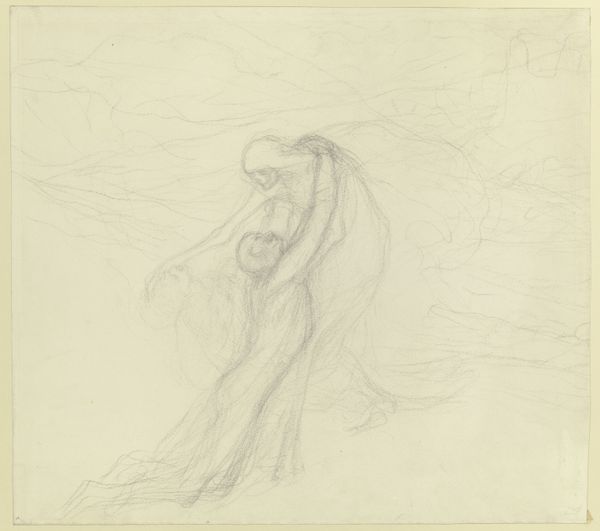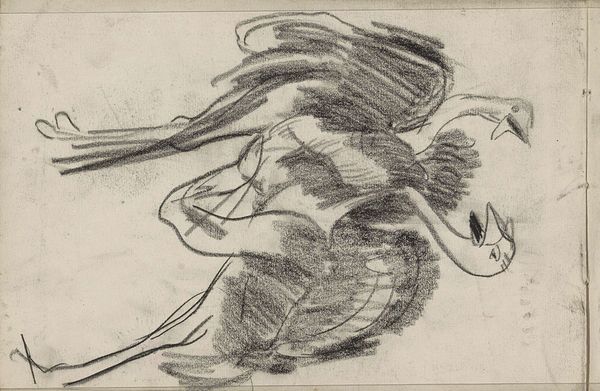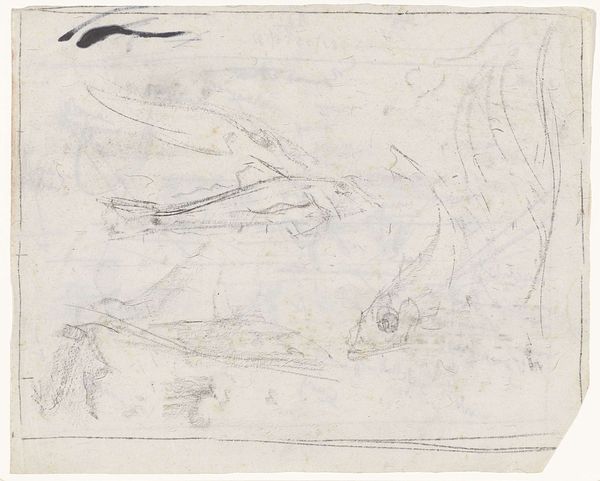
Schets van een zittende figuur in een halve cirkelvorm 1878 - 1938
richardnicolausrolandholst
Rijksmuseum
drawing, paper, pencil
portrait
drawing
imaginative character sketch
light pencil work
quirky sketch
incomplete sketchy
figuration
paper
personal sketchbook
character sketch
ink drawing experimentation
pencil
line
sketchbook drawing
sketchbook art
modernism
initial sketch
Dimensions: height 242 mm, width 241 mm
Copyright: Rijks Museum: Open Domain
Curator: Welcome. Before us we have "Sketch of a Seated Figure in a Semicircular Form", a drawing on paper rendered in pencil by Richard Nicolaüs Roland Holst, dating from between 1878 and 1938. It is currently held here at the Rijksmuseum. Editor: Oh, there's a raw, intimate energy to this, isn't there? Like stumbling upon someone’s private thoughts spilled onto paper. The lines are so tentative, almost searching. It gives the sense that the artist is just beginning to conceptualize something. Curator: It does invite speculation. Holst was very involved in the Dutch ethical socialist movement. So in relation to the political dimensions of late nineteenth-century art, such sketches provided the artist with material to explore a repertoire of politically charged symbols. Editor: It reminds me of those quick character sketches you do when you’re trying to get a feel for someone – but pushed to this kind of abstracted, almost ethereal level. There's an odd melancholy emanating, and it has this incredible sensitivity. Do you see the face almost obscured by these hatched lines? Curator: Holst, through his symbolic language, addressed contemporary moral issues of societal evolution in the Netherlands. It makes me wonder if this sketch served a purpose beyond personal reflection or casual exploration. We can think about the role of artists, such as Holst, and their use of preliminary drawing studies that function as an early step toward addressing political themes for the modern masses. Editor: Perhaps. I still keep coming back to that quality that feels like it’s drawn straight from some interior landscape. Almost feverish or in turmoil. But despite its seeming incompleteness, there’s an undeniable expressiveness. I wonder if Holst realized just how much he captured in these quick strokes? It is also an incredible glimpse into a modern artist’s approach to figuration through an interesting personal style of experimentation and expression, wouldn’t you say? Curator: Absolutely, these drawings provide key visual information about his design processes. These early sketches expose the conditions within which new subject matter emerges, as do our responses as viewers over a century later. Editor: I suppose seeing these works as intimate spaces is important. I feel much closer to the final artistic decision after seeing something like this, a little more aware and more curious about art history.
Comments
No comments
Be the first to comment and join the conversation on the ultimate creative platform.
